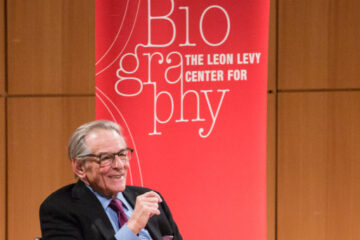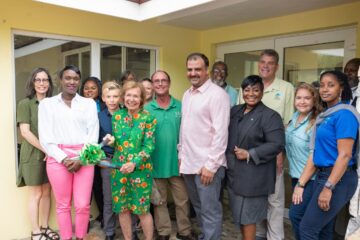April 2, 2019 – The Leon Levy Fellowship in Neuroscience symposium brought together premier early-career scientists at the five leading neuroscience research institutions in New York City: Weill Cornell Medicine, Columbia University Irving Medical Center, NYU Langone Health, The Rockefeller University, and Icahn School of Medicine at Mt. Sinai. One scientist from each school presented original research on topics ranging from “Leveraging Human Genetics and Mouse Models to Investigate the Biology of Major Depression” to “The Living Brain Project: A Prototype for the Next Generation of Human Brain Research”.
Augustine M.K. Choi, MD, Cornell University’s Stephen and Suzanne Weiss Dean and Weill Cornell Medicine Provost for Medical Affairs, delivered the opening remarks. Costantino Iadecola, MD, Director and Chair, Feil Family Brain and Mind Research Institute Weill Cornell Medicine, introduced the presenters throughout the day. Li Gan, PhD, Director, Helen and Robert Appel Alzheimer’s Disease Research Institute and Burton P. and Judith B. Resnick Distinguished Professor in Neurodegenerative Diseases at Weill Cornell Medicine, delivered the plenary talk on “How Microglial Dysfunction Contributes to Neurodegenerative Dementia”. Following the presentations from current fellows in the program and the plenary talk, a poster session was held to highlight the fellow’s ongoing research and promote discussion and collaboration among all the attendees.
With federal funds increasingly scarce, young neuroscientists are less able to venture into innovative, risk-taking investigations, opting instead for more easily funded, but potentially less groundbreaking, research. As a consequence, many promising biological researchers lack the resources to engage in the type of basic science and research that can lead to scientific progress. Recognizing that limited funding may place generations of neuroscientists at risk, the Leon Levy Foundation initiated its Leon Levy Fellowship in Neuroscience to provide premier scientists with the resources they need to focus on solving the most confounding issues of the human brain. Since its inception in 2009, the Leon Levy Foundation has provided nearly $30 million to more than 60 neuroscientists for the kind of potential-breakthrough brain science research that the government typically doesn’t fund.



